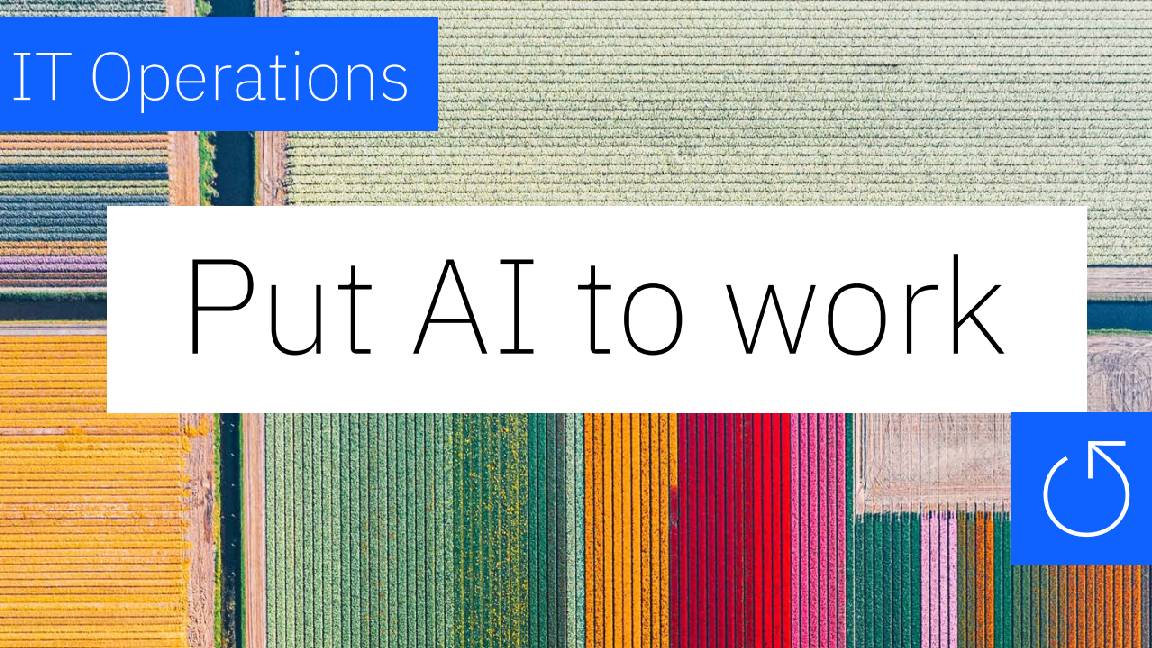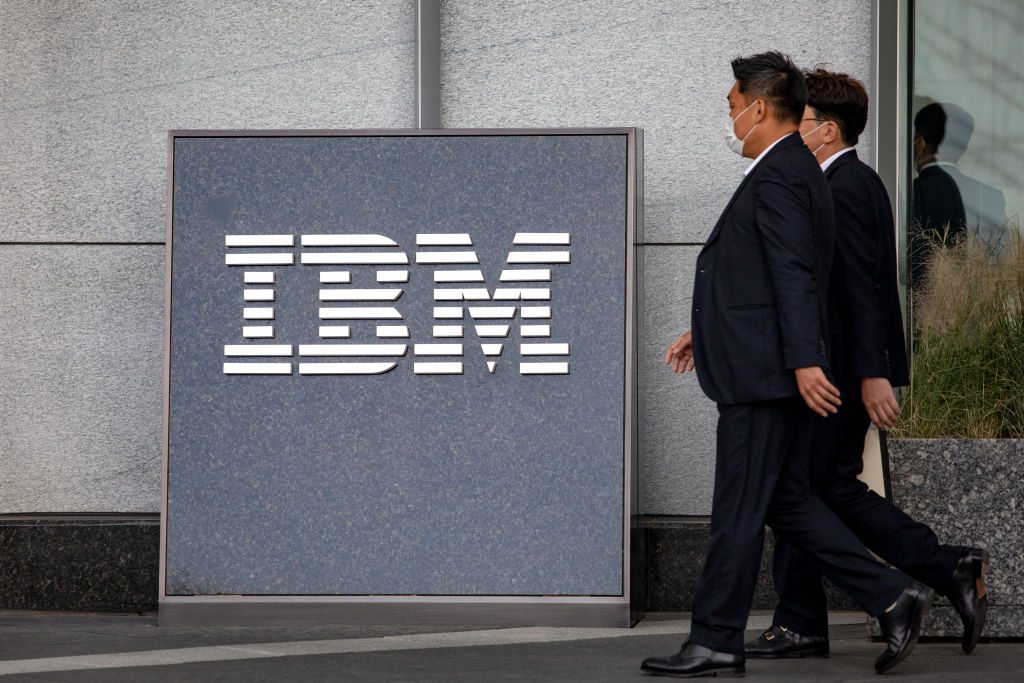IBM reboots storage strategy
Server maker’s storage upgrades designed to help companies struggling with vastly increasing data stores.

IBM has announced a raft of upgrades to its storage products in reaction to the growing unstructured data retention requirements of the enterprise.
Over 30 products or services are being launched or upgraded and come as a result of a $2 billion (1.11 billion) investment over the last three years in research and acquisitions.
Even as the economy slows sales of storage will continue to spiral - at least until someone invents a way for companies to stop collecting so much data, analysts say.
Proliferating data storage requirements brought on both by customer demands to keep information instantly available and by mounting record-keeping mandated by regulators are forcing companies to retool their corporate data centres.
IBM said its new line-up of storage products and services are designed to help customers manage the transition from static data archives to dynamic storehouses ready to manage two-way data flows over the internet.
"IBM is trying to illustrate how many facets of their storage offerings can be viewed as something strategic and cohesive as opposed to just another series of 'cool products,'" said analyst Clay Ryder, the president of Sageza Group.
IBM said it aims to help customers - big banks, retailers, government agencies and other organisations - contend with the growing digitisation of entertainment, health care, security and retail information.
Get the ITPro daily newsletter
Sign up today and you will receive a free copy of our Future Focus 2025 report - the leading guidance on AI, cybersecurity and other IT challenges as per 700+ senior executives
It estimates that the average individual's "information footprint" - the amount of data connected to a person - will grow to more than 16 terabytes by 2020 from roughly one terabyte, or trillion bytes, of data currently.
"IBM is saying let's talk about general business requirements first, then will go the technology bag of tricks and figure out what the customers need," said Mary Turner, an analyst with Enterprise Strategy Group. "This is a cross business-unit effort."
Competitively, IBM is showcasing how the breadth of its storage-related hardware, software and related services can be made to work together for customers small and large.
Only EMC, the leading independent storage maker, has articulated a similarly broad strategy for managing all parts of an organisation's "information infrastructure," analysts said. HP and Dell still sell storage largely tied to their server products, while Sun is also active in the tape market, but its offerings are nowhere near as comprehensive as IBM or EMCs.
"At some level IBM is announcing the latest, greatest versions of products that have been around quite a while," said Charles King, an analyst with Pund-IT. It is also showing off really interesting next-generation capabilities."
Seeking to show it can cut the costs of storing massive amounts of data, IBM is demonstrating new technology from its January acquisition of XIV using solid-state memory instead of disk-drives or magnetic tape now used to store data.
The transition from disk drives to flash-memory has begun to occur in consumer electronics, but IBM's announcement suggests that solid state storage - memory with no moving parts - is becoming cost effective in big business storage.
"This is the industry's first stab at big solid state storage," Ryder said. "If you don't have spindles and disks, you have no parts to fail and you can use less power."
And it is incorporating the latest data "deduplication" technology that eliminates the need to keep many copies of the same information, a move that promises to help customers save vastly more information in the same amount of office space.
Making use of software and hardware it acquired by buying Diligent Technologies in April, IBM said the deduplication technology can reduced redundant data by a ratio of 25:1.
Deduplication joins storage virtualisation, another technique that IBM and it rivals are promoting to increase the usage of existing storage equipment, while making it easier to manage and cutting energy use.
Companies are running out of room in existing data centres to store these growing piles of information.
IBM is offering a high-density tape storage library system that uses robotic arms to locate and read archival data tapes that holds three times more cartridges in the same floor space. Businesses can store up to three petabytes, or quadrillion bits, of data in 10 square feet of floor space, it said.
To secure this data, the company also is offering systems with automatic data encryption using Seagate's encrypted hard drives.
ITPro is a global business technology website providing the latest news, analysis, and business insight for IT decision-makers. Whether it's cyber security, cloud computing, IT infrastructure, or business strategy, we aim to equip leaders with the data they need to make informed IT investments.
For regular updates delivered to your inbox and social feeds, be sure to sign up to our daily newsletter and follow on us LinkedIn and Twitter.
-
 Asus ZenScreen Fold OLED MQ17QH review
Asus ZenScreen Fold OLED MQ17QH reviewReviews A stunning foldable 17.3in OLED display – but it's too expensive to be anything more than a thrilling tech demo
By Sasha Muller
-
 How the UK MoJ achieved secure networks for prisons and offices with Palo Alto Networks
How the UK MoJ achieved secure networks for prisons and offices with Palo Alto NetworksCase study Adopting zero trust is a necessity when your own users are trying to launch cyber attacks
By Rory Bathgate
-
 Put AI to work for IT operations
Put AI to work for IT operationswhitepaper Reduce the cost and complexity of managing hybrid applications
By ITPro
-
 AI in the retail industry is spreading beyond the IT department
AI in the retail industry is spreading beyond the IT departmentNews AI has become a strategic imperative for retailers, delivering marked productivity gains
By Emma Woollacott
-
 Maximizing contact center operations with generative AI assistants backed by responsible AI principles
Maximizing contact center operations with generative AI assistants backed by responsible AI principleswhitepaper Reduce the cost and complexity of managing hybrid applications
By ITPro
-
 IBM just launched powerful new open source AI models – here’s what you need to know
IBM just launched powerful new open source AI models – here’s what you need to knowNews Available under the Apache 2.0 license, IBM's Granite 3.0 models are trained on enterprise data and can out-perform the competition
By Emma Woollacott
-
 Achieving business outcomes with generative AI
Achieving business outcomes with generative AIWebinar Take your hybrid cloud journey to the next level with generative AI
By ITPro
-
 Wimbledon’s new Catch Me Up AI feature promises to keep fans up to date at the tournament – after it irons out some of the wrinkles
Wimbledon’s new Catch Me Up AI feature promises to keep fans up to date at the tournament – after it irons out some of the wrinklesNews The latest feature to come out of IBM’s partnership with Wimbledon will keep fans engaged from the early stages right through to the final with dynamic player insights
By Solomon Klappholz
-
 AI demands new ways of data management
AI demands new ways of data managementwhitepaper The data leader’s guide for how to leverage the right databases for applications, analytics and generative AI
By ITPro
-
 AI governance for responsible transparent and explainable AI workflows
AI governance for responsible transparent and explainable AI workflowswhitepaper Build greater trust in your AI
By ITPro
